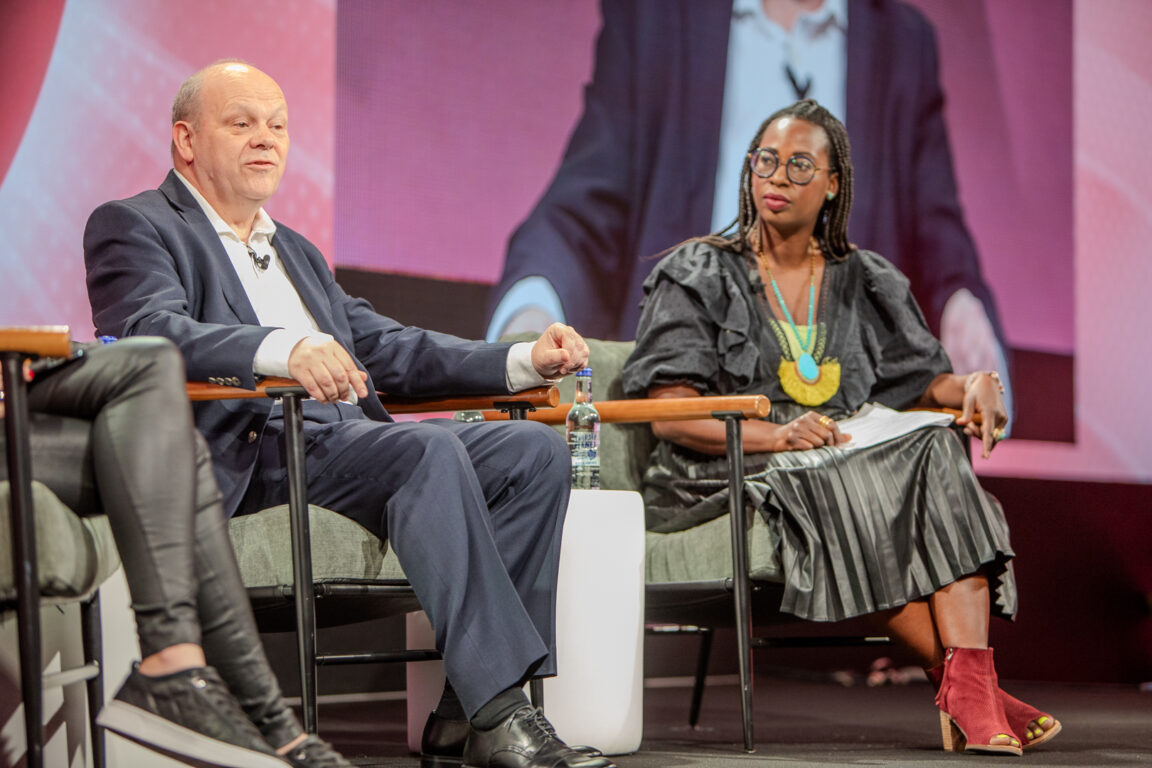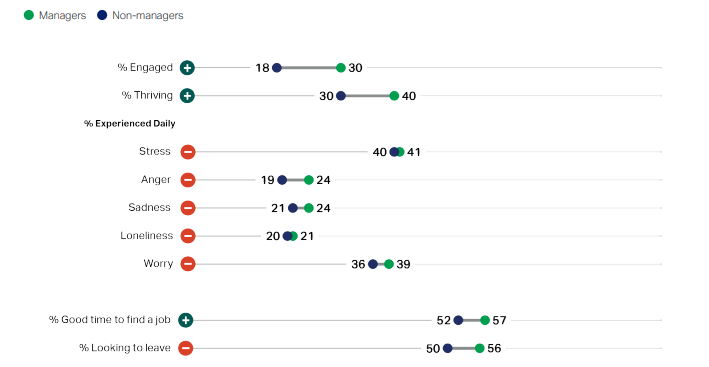Better managers can fix the $8.9tril productivity loss from disengaged workforces, says Gallup
Gallup’s managing partner Leslie Rowlands shared his insights into fixing the disengagement problem at Workhuman Live in London.
News In Brief
Employees are disengaged, unhappy and dissatisfied at work. They are stressed, lonely and angry.
All of this is impacting business bottom lines - that's according to Gallup's 2024 State of the Workplace Report.
UNLEASH digs into the data to find the solutions!
Employees remain disengaged and unhappy at work.
Gallup’s 2024 State of The Global Workplace Report, which surveyed 128,000 people globally, found that 2023 employee engagement remained flat on 2022 levels.
Under a quarter (23%) of employees are engaged at work, while 62% say they are not engaged and 15% are actively disengaged (according to Gallup this means that they actively oppose their employers goals).
All of this disengagement at work isn’t just a problem in theory, it is having a huge impact on productivity and business bottom lines.
Gallup’s report estimates that $8.9 trillion (or 9% of global GDP) is lost due to low workplace engagement – the figure was $7.8 trillion in 2022.
A related issue is that wellbeing declined in 2023 – it dropped from 35% to 34% – and this year 41% of workers globally report a lot of stress and 20% experience daily loneliness.
Just a third (34%) of employees said they were thriving at work, while 58% said they were struggling and 8% were suffering.
These figures are higher for younger workers (under 35s) – 22% of the are lonely and only 31% are thriving – and the problem is particularly acute in Europe, only 13% of workers in that region are engaged, while 16% are actively disengaged, and 37% are stressed.
What’s worrying, according to Gallup’s data, is that being actively disengaged at work, feeling like you’re stuck in a job you dislike because of economic reasons, is either equivalent or worse than being unemployed.
This is especially the case when it comes to employee stress, anger, worry and loneliness.
Those who were actively disengaged said they had “a lot of stress” 30% more frequently than those who were unemployed.
Last week, UNLEASH was at Workhuman Live in London. And speaking on a panel at the show was Leslie Rowlands, Managing Partner at Gallup. He shared that its clear many employers are getting it wrong.
“You want to come to work in the morning [with] a spring in your step, and, unfortunately, far too many folks are not looking forward to the working day.”

Leslie Rowlands from Gallup on stage at Workhuman Live in London.
This needs to change, but where should employers start?
Good managers are the key to having more engaged and productive workers
To switch employees from disengaged and struggling to thriving, relationships at work are key, whether its peer to peer, or between employees and managers.
When people feel appreciated, recognized and part of a team, they are more engaged and will more likely to above and beyond.
According to Rowlands, this is why friendships at work are essential to business success – business leaders often disregard the importance of this, but they shouldn’t if they want to fix the engagement issue.
While workplace friendships are a crucial element, Gallup’s report identifies the relationship between individuals and their manager as being particularly critical to addressing the engagement and wellbeing challenges facing organizations right now.
Gallup’s data shows that 70% of team engagement can be attributed to the manager; “an effective manager motivates team members, moving them from indifferent to inspired”.
Rowlands shared at Workhuman Live London four pillars of being a great manager – trust, compassion, stability and hope.
The last one is about instilling a sense of hope for the future (and bringing employees along on that journey with you).
However, all of this is much easier said than done – Gallup’s data found that managers are themselves disengaged – only 30% of them are engaged overall, and they are more likely to be stressed, angry, sad and lonely than individual employees.

Credit: Gallup.
So, managers actually need additional support on their wellbeing, and they need training to help them be better managers.
All of this is worth the investment, because, as Gallup data shows, when employers get this right, they truly will reap the rewards.
In best-practice organizations, Gallup found there was a 78% decline in absenteeism, 10% higher customer loyalty, 23% more profitability, and 68% higher wellbeing and number of thriving employees.
This confirms recent data from Wellhub that found that 95% of employers see a ROI from wellbeing.
HR leaders, what are you waiting for?
Sign up to the UNLEASH Newsletter
Get the Editor’s picks of the week delivered straight to your inbox!

Chief Reporter
Allie is an award-winning business journalist and can be reached at alexandra@unleash.ai.
